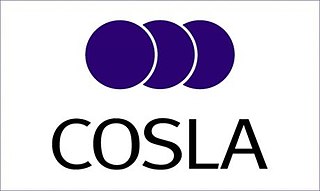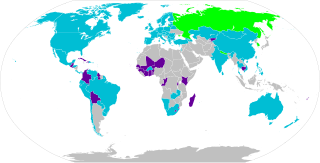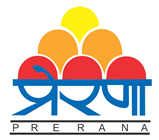Best interests or best interests of the child is a child rights principle, which derives from Article 3 of the UN Convention on the Rights of the Child, which says that "in all actions concerning children, whether undertaken by public or private social welfare institutions, courts of law, administrative authorities or legislative bodies, the best interests of the child shall be a primary consideration". Assessing the best interests of a child means to evaluate and balance "all the elements necessary to make a decision in a specific situation for a specific individual child or group of children".
International adoption is a type of adoption in which an individual or couple residing in one country becomes the legal and permanent parent(s) of a child who is a national of another country. In general, prospective adoptive parents must meet the legal adoption requirements of their country of residence and those of the country whose nationality the child holds.

The Children Act 1989 is an Act of Parliament of the United Kingdom that received royal assent on 16 November 1989 and came into substantial force across all three jurisdictions of the United Kingdom on 14 October 1991. In 1995, for the purposes of devolution, the Act was replaced by parallel legislation in Scotland and Northern Ireland. And in 2016, Part III of the Act was replaced in Wales.

Trafficking of children is a form of human trafficking and is defined by the United Nations as the "recruitment, transportation, transfer, harboring, and/or receipt" kidnapping of a child for the purpose of slavery, forced labour, and exploitation. This definition is substantially wider than the same document's definition of "trafficking in persons". Children may also be trafficked for adoption.
Foster children in Canada are known as permanent wards. A ward is someone, in this case a child, placed under protection of a legal guardian and are the legal responsibility of the government. Census data from 2011 counted children in foster care for the first time, counting 47,885 children in care. The majority of foster children – 29,590, or about 62% – were aged 14 and under. The wards remain under the care of the government until they "age out of care." This age is different depending on the province.
The International Social Service (ISS) is an international non-governmental organization (NGO) founded in 1924. It provides assistance in resolving international child protection cases.

The Convention of Scottish Local Authorities (COSLA) is the national association of Scottish councils and acts as an employers' association for its 32 member authorities.
Child protection refers to the safeguarding of children from violence, exploitation, abuse, and neglect. It involves identifying signs of potential harm. This includes responding to allegations or suspicions of abuse, providing support and services to protect children, and holding those who have harmed them accountable.
An unaccompanied minor is a child without the presence of a legal guardian.

The Hague Convention on Protection of Children and Co-operation in Respect of Intercountry Adoption is an international convention dealing with international adoption, child laundering, and child trafficking in an effort to protect those involved from the corruption, abuses, and exploitation which sometimes accompanies international adoption. The convention has been considered crucial because it provides a formal international and intergovernmental recognition of intercountry adoption to ensure that adoptions under the convention will generally be recognized and given effect in other party countries.
Child migration or "children in migration or mobility" is the movement of people ages 3–18 within or across political borders, with or without their parents or a legal guardian, to another country or region. They may travel with or without legal travel documents. They may arrive to the destination country as refugees, asylum seekers, or economic migrants.
Angola is a source and destination country for men, women, and children subjected to trafficking in persons, specifically conditions of forced prostitution and forced labor. Internally, trafficking victims are forced to labor in agriculture, construction, domestic servitude, and reportedly in artisanal diamond mines. Angolan women and children more often become victims of internal rather than transnational sex trafficking. Women and children are trafficked to South Africa, the Democratic Republic of the Congo (DRC), Namibia, and European nations, primarily Portugal. Traffickers take boys to Namibia for forced labor in cattle herding. Children are also forced to act as couriers in illegal cross-border trade between Namibia and Angola as part of a scheme to skirt import fees. Illegal migrants from the DRC voluntarily enter Angola's diamond-mining districts, where some are later reportedly subjected to forced labor or prostitution in the mining camps.
Chad is a source and destination country for children subjected to trafficking in persons, specifically conditions of forced labor and forced prostitution. The country's trafficking problem is primarily internal and frequently involves parents entrusting children to relatives or intermediaries in return for promises of education, apprenticeship, goods, or money; selling or bartering children into involuntary domestic servitude or herding is used as a means of survival by families seeking to reduce the number of mouths to feed. Child trafficking victims are primarily subjected to forced labor as herders, domestic servants, agricultural laborers, or beggars. Child cattle herders follow traditional routes for grazing cattle and at times cross ill-defined international borders into Cameroon, the Central African Republic (CAR), and Nigeria. Underage Chadian girls travel to larger towns in search of work, where some are subsequently subjected to prostitution. Some girls are compelled to marry against their will, only to be forced by their husbands into involuntary domestic servitude or agricultural labor. In past reporting periods, traffickers transported children from Cameroon and the CAR to Chad's oil producing regions for commercial sexual exploitation; it is unknown whether this practice persisted in 2009.
Unaccompanied asylum-seeking children in the United Kingdom, often abbreviated to UASC, are children who are outside their country of origin to seek asylum in the United Kingdom, are separated from parents and relatives, and are not in the care of someone who is responsible for doing so.
AFRUCA (Africans Unite Against Child Abuse) is a UK charity, established in 2001 by Modupe Debbie Ariyo OBE, as a platform for advocating for the rights and welfare of African Children. AFRUCA was set up in response to the deaths of African children in the UK such as Damilola Taylor, Jude Akapa, and Victoria Climbie who suffered abuse. AFRUCA works both across the UK from two bases in London and Manchester, and internationally in partnership with agencies across Europe and in Africa. AFRUCA also heavily relies on the 1989 United Nation Convention on the Rights of the Child to form the basis of their work. The organisation's stance is that culture and religion should not be a reason to abuse children.
The Office of Refugee Resettlement (ORR) is a program of the Administration for Children and Families, an office within the United States Department of Health and Human Services, created with the passing of the United States Refugee Act of 1980. The Office of Refugee Resettlement offers support for refugees seeking safe haven within the United States, including victims of human trafficking, those seeking asylum from persecution, survivors of torture and war, and unaccompanied alien children. The mission and purpose of the Office of Refugee Resettlement is to assist in the relocation process and provide needed services to individuals granted asylum within the United States.

Prerana is a non-governmental organization (NGO) that works in the red-light districts of Mumbai, India to protect children vulnerable to commercial sexual exploitation and trafficking. It was established in 1986.

The 2014 American immigration crisis was a surge in unaccompanied children and women from the Northern Triangle of Central America (NTCA) seeking entrance to the United States in 2014. According to U.S. law, an unaccompanied alien child refers to a person under 18 years of age, who has no lawful immigration status in the U.S., and who does not have a legal guardian to provide physical custody and care.
Transnational child protection refers to the protection of children from violence, exploitation, abuse and neglect in an international setting. When a non-national child comes into contact with public authorities and service providers, a series of checks, assessments and immediate measures sets in to identify the child and to assess her or his situation. Article 19 of the UN Convention on the Rights of the Child provides for the protection of children in and out of the home, including in their country of origin, residence or a third country. Article 2 of the Convention provides for the right to non-discrimination, meaning children have the right to protection regardless of the national origin or status of the child or his or her parents or legal guardians.






